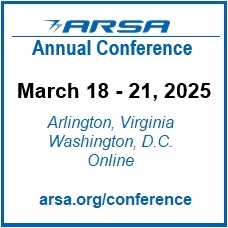[Updated] DOT Resources on D&A Testing During Crisis
To keep tabs on all of ARSA’s work related to the current pandemic, visit arsa.org/anti-viral-measures.
Update: On March 30, the FAA released an additional reference document regarding disruptions to drug & alcohol testing due to COVID-19. Click here to access the document.
March 25, 2020
Following up on a March 24 update provided to industry by the FAA, ARSA queried the agency’s Drug Abatement Division regarding its posture on drug and alcohol testing regimens during the current national emergency and was given a prompt response to first refer to the Department of Transportation’s postings on the issues and then to reference the FAA’s own Q&A on any unanswered concerns.
The Department of Transportation has published guidance for employers, employees and services agents conducting DOT drug and alcohol testing and the concerns about the Coronavirus (Covid-19). The guidance is available at www.transportation.gov/odapc/compliance-with-dot-drug-and-alcohol-testing-regulations.
Since the guidance published by the DOT applies to all transportation agencies and many different types of operators, it is generic and refers operators back to the transportation agency for information on the flexibilities or best practices available to ensure compliance. As it relates to random testing, each agency does have some flexibility in the regulation for when to excuse a random testing selection if an employee is on extended absence. It is also possible to hold the selections until the employees return to work.
All of this information is explained in the FAA’s Random Guidance Alert and a Frequently Asked Question about what to do when an employee is on extended absence.
ARSA has also learned that Drug Abatement is trying to obtain clearance for specific guidance that is similar to what other modal agencies have provided. For example, if your company is also subject to drug and alcohol testing under the Federal Motor Carrier Safety Administration (FMCSA), that agency has provided further guidance on inability to complete certain testing.
While the government never seems able to just come out and say something straight, the advice being provided indicates that persons that cannot or will not agree to be tested during these questionable times “may” be reasonably excused under the regulations. The employer is responsible for properly and completely documenting the circumstances for the “refusal” or “excused absence” preventing the testing and for ensuring compliance with mandatory provisions of the drug and alcohol testing requirements, such as pre-employment or return-to-duty.
The information available online should apply in most situations during this unprecedented period. If more information or guidance is necessary, aviation stakeholders should contact drugabatement@faa.gov.
ARSA will post any further developments and stands ready to answer member questions.








